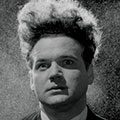As a folk musical comedy mockumentary, Christopher Guest’s 2003 film A Mighty Wind interacts with film genre in a number of interesting ways.
On the surface, the most obvious genre association that can be made is the musical film, or, more specifically, the backstage musical (one of the earlier codified genres, which came out of Hollywood in the 1920s1). A Mighty Wind follows a group of folk musicians and performers as they come together to stage a tribute concert, and the process of bringing these musicians together, their reunions and rehearsals, and finally the concert itself, all feature prominently in the film. The music, though occasionally comedic in subject matter or lyrical content, is generally treated with the reverence that a genuine musical would afford its performances: the concert features full-scale productions, including elaborate set dressings, costumes and camera set ups, for each of the three groups performing. As is the case with most parody films, Guest carefully adheres to the conventions of the genre his film parodies, despite occasional jokes at the expense of the absurd nature of musicals.
A Mighty Wind is also a mockumentary, which is a genre that holds many of its own idiosyncratic conventions (most of which Guest himself helped to popularise and codify with This Is Spinal Tap (1984) and the films that followed it). Mockumentary owes much of its own character to the rules and conventions of the documentary — like talking heads interviews, vérité-style camera work, etc. — and indeed A Mighty Wind generally utilises these techniques and rules faithfully. But, importantly, it also deviates from many of these tropes when comedy calls for it, such as showing action that would never realistically be captured in a genuine documentary.
- Rubin, M. (2001) ‘Busby Berkeley and the Backstage Musical’, in Cohan, S. (ed.), Hollywood Musicals, The Film Reader. United Kingdom: Taylor & Francis. ↩
